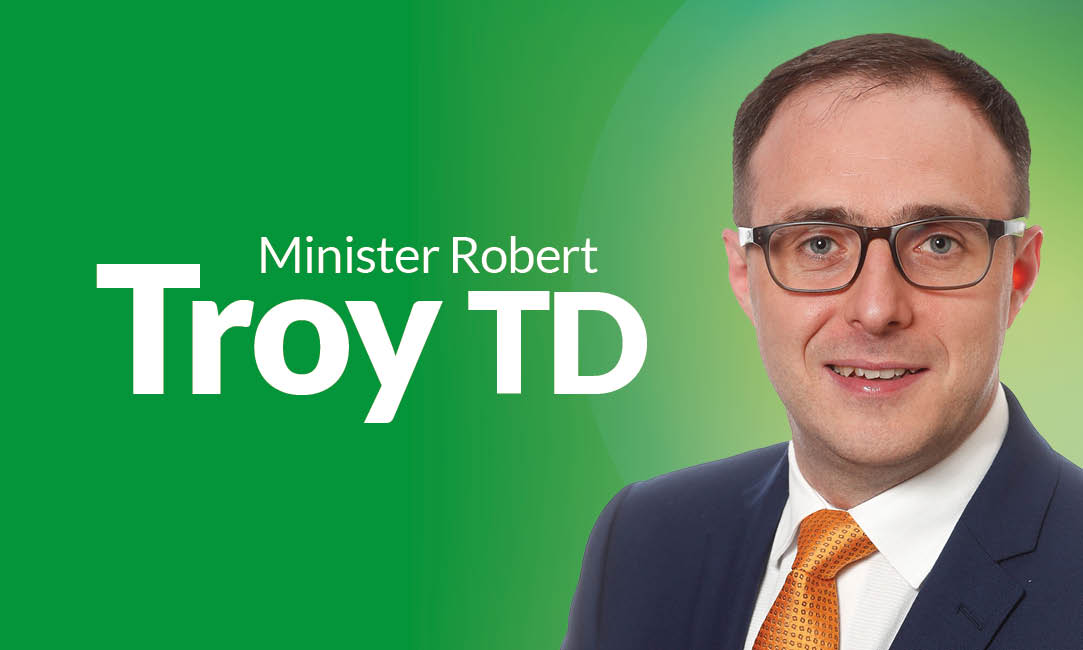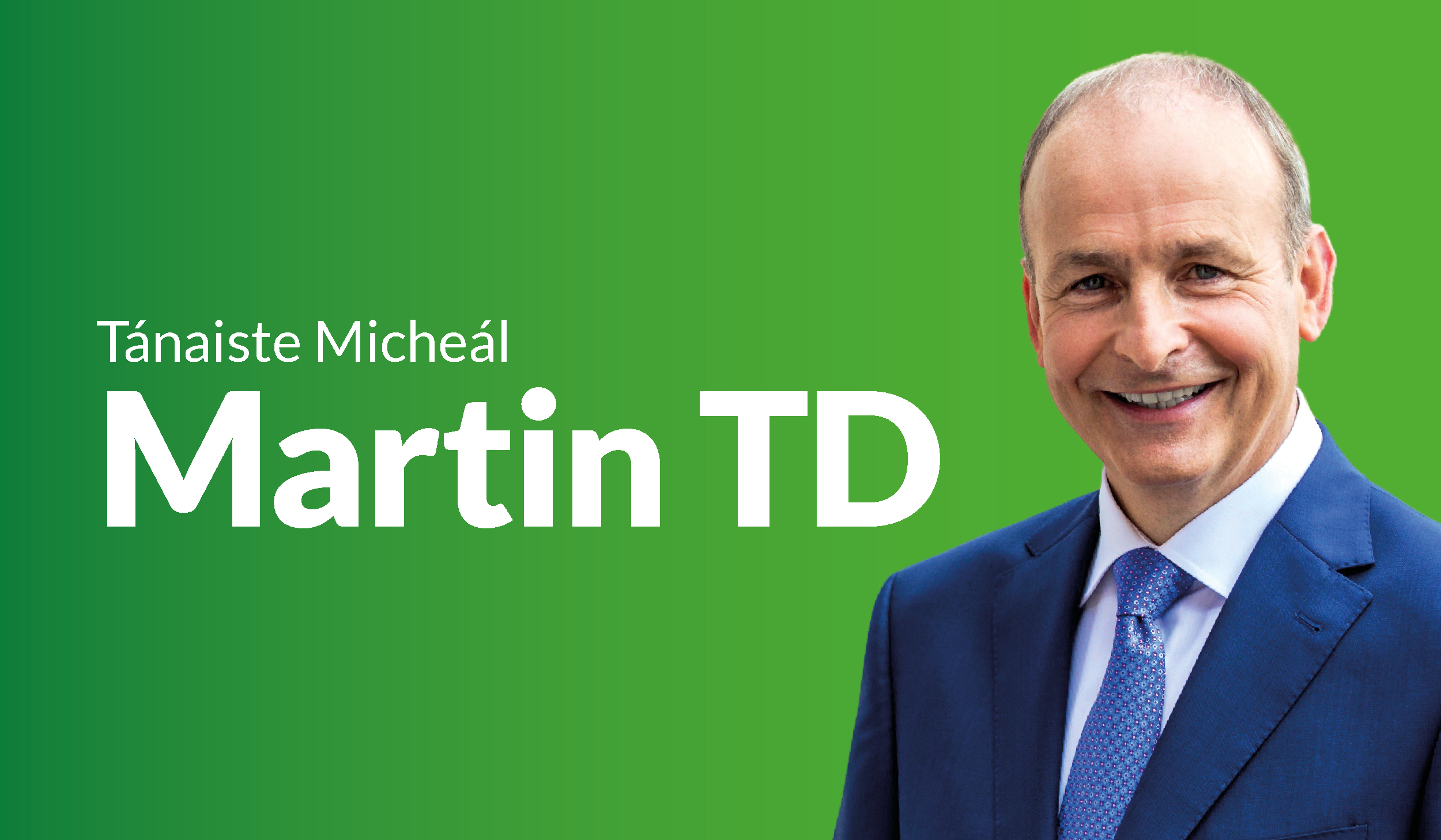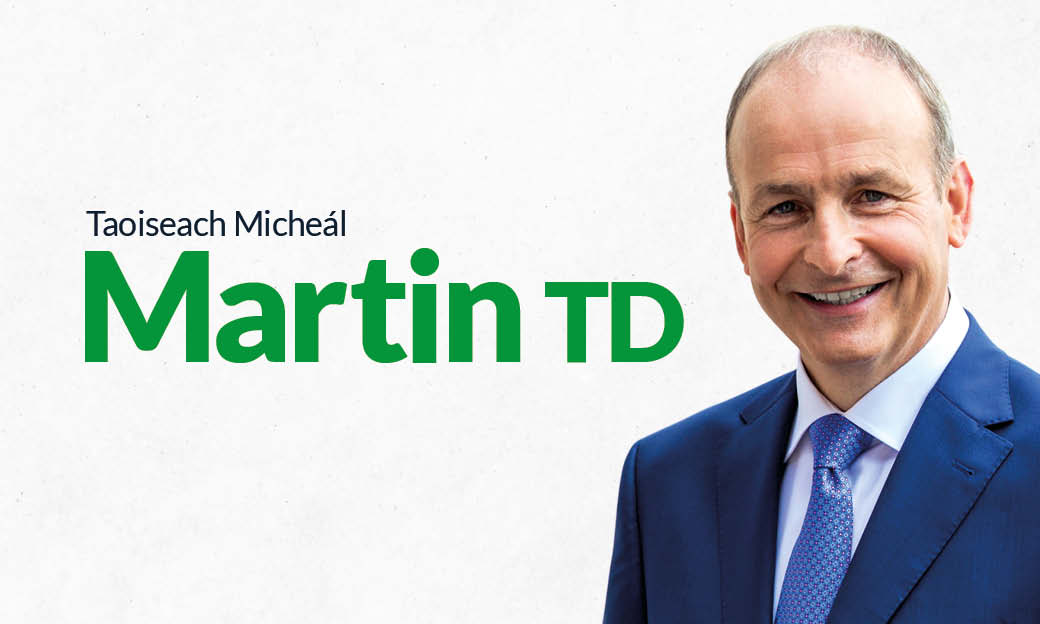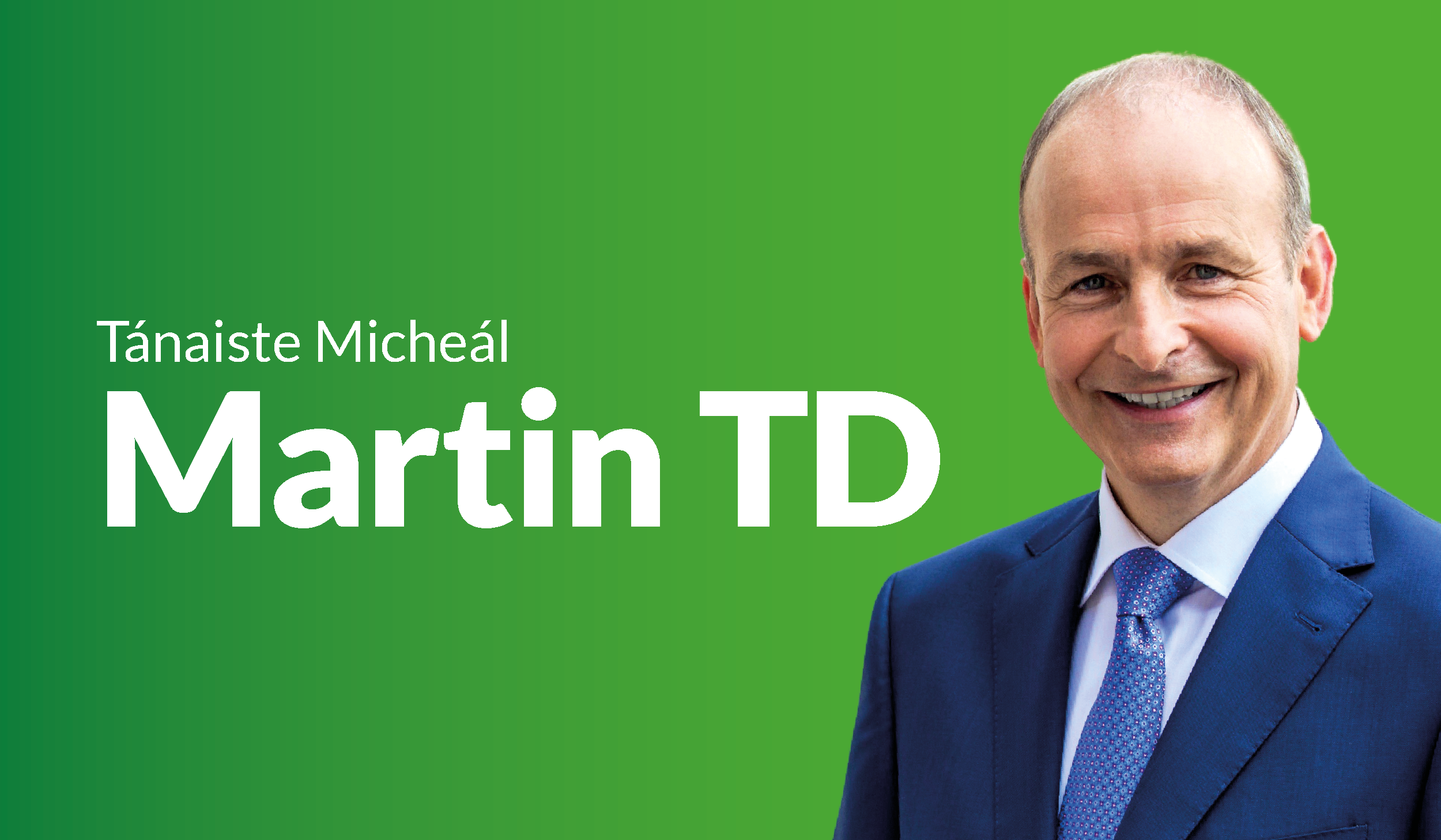An Tánaiste, Micheál Martin TD Funeral Oration for Mary O’Rourke
Published on: 07 October 2024
CHECK AGAINST DELIVERY
It is an honour to have been asked by the family of our friend and colleague Mary O’Rourke to speak with you as we lay her to rest.
Public life is full of many great characters, but few have burned so brightly and for so long.
Few have left behind not only the warm glow of personal connection with the people, but a record of real substance.
Yes she was a major national celebrity, a brilliant and modern communicator. She was someone who was welcomed and applauded by people in all parts of our country.
But these are of only passing importance. Far more important is that she was a person of deep substance – a political leader who left public office with a record of delivering lasting progress for her community and her country.
Perhaps the single most important thing to do when trying to understand Mary is to remember that everything she achieved stood on the rock-solid foundation of family.
The family she grew up in. The family which she built with her beloved Enda. The generations of family which she was so proud of and which kept her rooted.
When Mary was born her father Patrick James, along with her mother Ann, were beginning a new chapter in their already full lives.
Having fought in the War of Independence, her father had first taught and then worked as a public servant in different parts of the island.
May 1937 was a was a turning point for our new state. A republican constitution began its journey through Dáil Éireann. Ireland spoke up internationally against the drift towards war. And there was a new determination to build up Irish industries to ensure our self-sufficiency.
It was then too that Seán Lemass approached Mary Lenihan’s father to ask him to lead a new textiles firm in Athlone. Particularly because they wanted a stable base for their young family, the offer was accepted and from then onwards Athlone would be the centre of her life.
Patrick built the company to a level where it employed 700 people. His talents were recognised to the extent that Lemass again approached him in 1942 asking him to run for the County Council.
82 years later the Lenihan family’s service continues with Mary’s son Aengus having been reelected to the County Council in June.
The home in which Patrick and Ann raised their children was a home where learning was always valued – and where the children were expected to devote themselves to reading far beyond just the school curriculum. Crucially it was also a home where a daughter was encouraged to hold as many hopes and aspirations as a son.
Mary herself often spoke about how her own interest in literature and lifelong commitment to reading was encouraged from home and was one of the great strengths she could rely on.
This passion was why she chose to study Arts in UCD and then to qualify as a teacher in Maynooth. As teacher she inspired generations of pupils.
A lot of comments have been made today and since Mary passed about her relationship with her beloved husband Enda. I’m not sure that any words could adequately describe the closeness of their bond.
In the countless conversations I had with her over the years before Enda passed, Mary would always refer to the advice which Enda had given her, the long conversations they had, the observations he made on the political matters of the day.
And after he passed, his memory was always present.
It was a deep relationship of respect and affection. It gave them and their children a safe and loving home. It was the bedrock for a political career which would not have been possible otherwise.
Mary was first elected to public office fifty years ago when she became a member of Athlone Urban District Council – which she would go on to chair on three separate occasions. She was proud to be from Athlone and believed that we all had a duty to agree with her on its many virtues.
She was second to no one in the work she did to bring investment to Athlone and the communities around it. Local schools were always a priority, as was attracting good jobs through official offices and private enterprise.
A growing, successful, confident Athlone is part of Mary O’Rourke’s wonderful legacy.
When she first became a member of the Oireachtas in 1981 everyone could see that this was not someone who was just there to make up the numbers or to quietly do what she was told.
She spoke up and she made herself heard from the first day to the last.
Of all of the offices she held the one which stands out is her four year period as a dynamic and reforming Minister for Education.
She was minister at a time of very severe financial restrictions, yet she was determined to make Irish education more inclusive, more modern and more effective. She implemented changes which have had a deep and positive impact on the development of our country.
Mary believed that Irish schools needed to be more diverse, that they had to not only provide more options on the type of school children could attend, they also needed to offer more programmes.
She began state recognition of Multi-Denominal schools as well as new Gaelscoilleana – giving new schools an automatic right to recognition when sufficient pupils were enrolled. From this seed planted by Mary came the enormous growth in these schools.
Mary pushed for schools to offer the underdeveloped Transition Year programme, introducing funding to support it, and pushed for the Leaving Certificate to be offered in all second-level schools together with vocational options.
This was part of her personal commitment to setting a new agenda for tackling educational disadvantage. She believed that schools which serve communities with fewer resources and few strong schools needed an extra help – that the state had an obligation to work with them to help children to fulfil their potential.
Because of this she implemented the first national expansion of the Disadvantaged Areas Scheme. Research has repeatedly shown how this approach has succeeded in helping reduce educational disadvantage.
And she also put in place a policy of seeking to steadily reduce the size of classes in Irish schools. She believed in allowing allow teachers and pupils more opportunity to interact. When she became Minister the average size of an Irish primary school class was 32. She secured agreement in government to begin reducing this – and today the primary classes have been transformed, with an average class size of 22.
In order for education to be more inclusive it needed to hear from more voices. She valued her relationship with the teacher unions, creating a system of regular engagement. Mary understood that government would have to lead, but she welcomed robust discussion and would try every route possible to find an agreed way forward.
And she also recognised the voice of parents in education, pushing for including parents on boards of management and providing funding for the National Parents Councils.
In a remarkably far-sighted development, she challenged schools to rethink their relationship with parents, and created the Home School Community Liaison scheme to help schools to work closer with families and community organisations.
And she also began a new expansion in third-level education. She legislated for two new universities, brought together the diverse parts of what is now the Technological University of Dublin and pushed all colleges to find ways of admitting more students from disadvantaged backgrounds.
Because of Mary’s time as Minister for Education, many hundreds of thousands of young people have been given the opportunity of fulfilling their potential. Her programme of reform and development was broad in its ambition and lasting in its impact. Were it only for this, Mary O’Rourke would deserve our thanks and to be remembered as a builder of modern Ireland. However, she achieved much more.
As Minister for Labour Affairs and Minister for Public Enterprise she promoted a model consensual negotiations, level space for different sides to be heard and to maximise the opportunities to avoid conflict.
In big things and small she made a lasting contribution. For example she pushed CIE to end the purchase of inaccessible buses, resulting in the transformation of a large part of public transport.
She pushed for a regulation of public companies to ensure that the public interest was protected and transparent pricing was introduced.
And she understood the need to plan for energy security, promoting new energy links across the Border and internationally.
As we say goodbye to her there are simply too many areas where she made a difference to be able to list them all. But what throughout her career you find the same themes, the same motivation.
She was a consistent, strong and determined voice for social progress, growth and inclusion in Ireland.
She believed that women and girls should always be supported - always encouraged to speak up and also always be listened to.
She worked for and celebrated every step towards building a more diverse and inclusive society.
She was proud to be a leader in Fianna Fáil’s progressive republican tradition, so deeply linked with Seán Lemass who saw in the Lenihan family people who shared his vision for building a new Ireland.
I had the personal privilege of knowing Mary for forty years. As a young member of Fianna Fáil I was honoured when both Mary and her brilliant and charismatic brother Brian encouraged me to stand for the Fianna Fáil National Executive and to run for elective office.
In Dáil Éireann and then in Cabinet she was a constant source of advice. When I was appointed as Minister for Education she told me, correctly, that it was a job which would fill every hour but that you would never once doubt that what you were doing was important.
She remained a much loved figure for the members of our party throughout the country, always swamped by well wishers when she attended events.
After Mary retired from politics the wide popularity she had always enjoyed became even clearer.
Her candid way of speaking. Her willingness to address the personal and often intimate aspects of life. Her mischievous smile. For these and many other reasons she was universally known and respected.
People came up to her constantly to shake her hand, to ask for a photo or to tell her how much they felt heard in the stories and emotions she talked about.
And in all of this her North Star was always her family.
Her beloved grandchildren gave her enormous satisfaction – seeing a new generation of young men and women grow up in a country which she had done so much to help become more inclusive and successful.
Mary O’Rourke was always true to herself and her beliefs.
As a daughter, a sister, a partner, a mother, a grandmother, a local representative, a national leader – in every role throughout her life she brought her character and her determination.
As we say goodbye to her we don’t just remember the times we shared, but we also give our thanks.
Our thanks for a life devoted to making our country a stronger, fairer place for all.
Ar dheis Dé go raibh a anam.
Tags:
Micheál Martin



